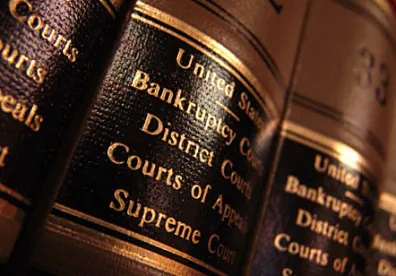It is a cardinal sin to attempt to collect a debt or repossess collateral after a borrower files bankruptcy.
Bankruptcy triggers the automatic stay – a command, not a suggestion, that collection activity ceases. This is a bedrock principle of bankruptcy and should be common knowledge, but sometimes a case comes along that presents a cautionary tale of what happens when creditors ignore the Bankruptcy Code. The Javert-like behavior of Mr. Gary Dority – who tried to use a criminal proceeding to collect a debt when bankruptcy stayed his small claims action – is one case. In a searing opinion, the Bankruptcy Court for the Eastern District of North Carolina demonstrated what will happen if a creditor instigates a criminal proceeding against a debtor to recover a debt.
Lori Kimbler owned and operated Cherishable Antiques in Havelock. Vendors could rent a booth inside her store to sell their antiques and other collectibles and consign items for sale. She received a commission on what she or they sold. Mr. Dority did both. When Ms. Kimbler closed the business, Mr. Dority contended that Ms. Kimbler owed him money. He sued her in Craven County small claims court for $1,400.00 for items he said Ms. Kimbler sold but did not pay him for.
The day before trial, Ms. Kimbler filed a pro se Chapter 7 bankruptcy that included Mr. Dority on the creditor mailing matrix. On the day of trial, Ms. Kimbler notified the magistrate and Mr. Dority of her bankruptcy filing. The magistrate adjourned the trial because of the bankruptcy automatic stay.
An angry Mr. Dority decided that, rather than weigh his options in bankruptcy, he would file criminal embezzlement charges against Ms. Kimbler. Mr. Dority filed a criminal complaint with the Havelock Police Department. A month later, Craven County issued three warrants for Ms. Kimbler's arrest for felony embezzlement. Mr. Dority was a witness in each warrant. Ms. Kimbler was arrested and when she could not post bail, jailed for 16 days. She was released with an ankle monitor, which she wore for four months. She also had to pay $883.00 for the ankle monitor.
Ms. Kimbler hired a lawyer who promptly notified Mr. Dority that his actions had violated the automatic stay. Mr. Dority took no action to request the Craven County DA drop the criminal case. Ms. Kimbler attended two hearings in the criminal case. Mr. Dority attended neither and the court continued both hearings. Ms. Kimbler's attorney then moved to sanction Mr. Dority.
Beyond staying civil actions and proceedings, the automatic stay bars any act to collect, assess, or recover a claim against the debtor that arose before the bankruptcy filing. The Bankruptcy Court held that the DA's office could initiate or continue a criminal prosecution notwithstanding the bankruptcy. But a creditor cannot instigate a criminal proceeding against a debtor if the primary purpose is to recover a dischargeable debt.
Section 362 of the Bankruptcy Code allows a debtor to recover actual damages incurred because of a "willful" violation of the automatic stay, including costs, attorneys' fees, and, in appropriate circumstances, punitive damages. A good‑faith mistake is not a valid defense. It is enough to establish the "willfulness" element of a violation if the court finds that the creditor has committed an intentional act with knowledge of the automatic stay.
Needless to say, it was not a close call on whether Mr. Dority's conduct was "willful." The Bankruptcy Court described his behavior as "egregious," said he "had no contrition, regret, or remorse," had an "unfettered narcissistic will," and described his conduct as "malicious evil sprinkled with reckless indifference."
The court heard testimony from Ms. Kimbler and her attorney about the emotional distress she suffered in jail, how the time in jail and wearing the ankle monitor impacted her ability to work, and on the legal fees and other expenses she incurred because of Mr. Dority. The Court entered a judgment against Mr. Dority for lost income, attorney's fees, and punitive damages for Ms. Kimbler's time in jail and time wearing the ankle monitor. The judgment even included the cost of the ankle monitor. Mr. Dority was trying to collect $1,400.00. When the bankruptcy court finished with him, he owed Ms. Kimbler $40,979.50.
For creditors, the lesson should be clear. Don't disregard the automatic stay or the bankruptcy courts. And don't use the criminal justice system as an end-run around the Bankruptcy Code.




 />i
/>i

